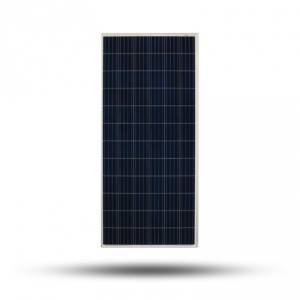Description
Polycrystalline Solar Modules: Reliable Power Generation for Your Needs
Polycrystalline solar modules, also known as multi-crystalline silicon modules, are a popular and cost-effective choice for residential, commercial, and industrial solar power systems. These modules offer a robust balance of performance, durability, and affordability, making them a versatile solution for various applications.
Key Features and Benefits:
- Cost-Effective: Polycrystalline silicon is less expensive to produce than monocrystalline silicon, resulting in a lower upfront cost for your solar energy system. This makes them a highly attractive option for budget-conscious consumers and large-scale projects.
- High Efficiency: While slightly less efficient than monocrystalline modules, polycrystalline technology still achieves respectable energy conversion rates, typically ranging from 15% to 18%. This means you'll still generate significant amounts of clean, renewable energy.
- Durable and Reliable: These modules are built to withstand harsh weather conditions, including wind, snow, and rain. They are encapsulated with robust materials and undergo rigorous testing to ensure longevity and reliable performance. Expect a lifespan of 25 years or more with proper installation and maintenance.
- Aesthetically Pleasing: While possessing a characteristic speckled blue appearance due to the multiple silicon crystals, polycrystalline panels are often considered visually acceptable for most installations. Their darker blue tone can also help minimize glare in certain settings.
- Wide Range of Applications: Polycrystalline solar panels are suitable for a variety of applications, including:
- Rooftop installations: Ideal for residential and commercial buildings.
- Ground-mounted systems: Suitable for larger-scale solar farms and utility projects.
- Off-grid systems: A reliable power source for remote locations.
Technical Specifications (Vary by Manufacturer and Model):
- Cell Type: Polycrystalline silicon (multi-crystalline)
- Efficiency: 15% - 18% (typical)
- Power Output: Ranges from a few hundred watts to several kilowatts depending on module size.
- Voltage: Typically 30-40 Volts (per module).
- Current: Varies depending on module size and power output.
- Temperature Coefficient: Describes how the panel's performance changes with temperature variations. (Specific value varies by manufacturer and model).
- Warranty: Typically comes with a 25-year performance warranty and a 10-12 year product warranty against manufacturing defects.
Choosing Polycrystalline Solar Modules:
Consider these factors when selecting polycrystalline modules:
- Power Output: Choose modules with a power output that meets your energy needs.
- Efficiency: While less efficient than monocrystalline panels, the cost savings often outweigh the efficiency difference.
- Warranty: Look for reputable manufacturers offering comprehensive warranties.
- Certifications: Ensure the panels are certified by relevant industry standards (e.g., IEC 61215, UL 1703).
Conclusion:
Polycrystalline solar modules present a compelling value proposition for those seeking a balance between cost-effectiveness, reliability, and performance. Their widespread use demonstrates their suitability for a wide range of solar energy applications. Contact a qualified solar installer to discuss your specific energy needs and determine if polycrystalline panels are the right choice for your project.
